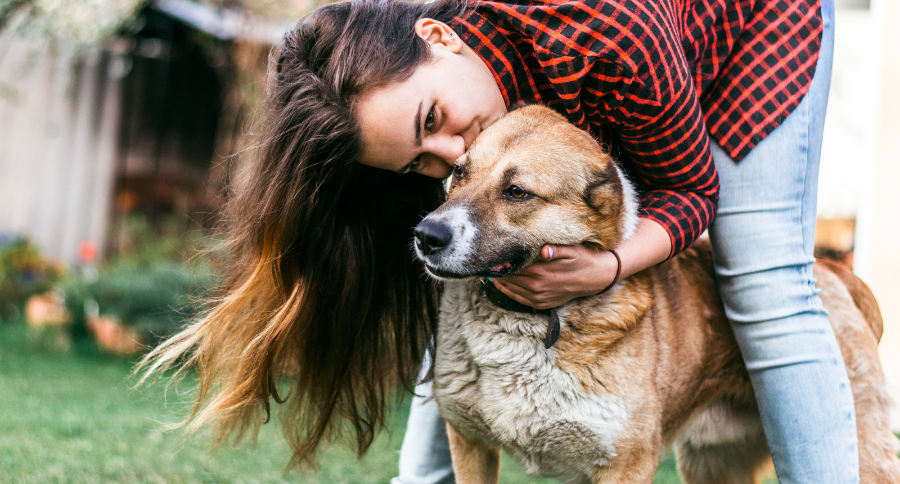Choose your words carefully when you're talking to your dog. A new study tells us that both what we say and how we say it matters to dogs! The New York Times reports that dog brains process speech in a way similar to humans. They understand both words' meanings as well as their tone.
Does this surprise you? My dog Sherman looks at me all the time as if he understands exactly what I've said and what I'm asking! In a New York Times interview with Attila Andics, a research fellow at Eotvos Lorand University in Budapest,
"Dr. Andics, who studies language and behavior in dogs and humans, along with Adam Miklosi and several other colleagues, reported in a paper to be published in this week's issue of the journal Science that different parts of dogs' brains respond to the meaning of a word, and to how the word is said, much as human brains do."
What did the study consist of?
Hungarian scientists trained canines to climb inside of MRI machines and sit still while the researchers spoke to them. The researchers spoke to the dogs using a variety of words and intonations.
In the study, they found that the dogs processed the words and tone of voice separately, in different sections of the brain. The left hemisphere of their brains lit up when they heard praise words and this was the case no matter what tone was used. The dogs register tone in the right hemisphere which is the same place that people do it.
For dogs, praise works as a reward, but it works best if both words and intonation match. Dogs can interpret what our words mean! Enjoy this video. It goes into more detail on how dog brains process speech!
The research fellow, Dr. Andics, also shares with The New York Times that the results suggest that the capacity to process meaning and emotion in different parts of the brain and tie them together is not uniquely human.
"For dog owners, Dr. Andics said, the findings mean that the dogs are paying attention to meaning, and that you should, too."
For dogs, praise works as a reward, but it works best if both words and intonation match.
Think about your body language and how your best friend may interpret that along with how they may process human language. Do you use a praising tone often when you tell your dog he's a good boy? The meaning of words used in your daily dialogue will hopefully be top of mind after reading this!
I still believe you should tell your dog when you're headed to the vet. Just make sure your tone is honest and that you clearly convey that wellness appointments are not scary but necessary. Use lots of praise! (Match your words and tone of course). My dog Sherman knows what I'm saying when I praise him and let him know what a good boy he is every single day. My heart is always full when I'm talking to him!
Do you agree with the results of this study? Do you think your dog understands you?
WATCH NOW: Border Collies Are a Super Smart Dog Breed




